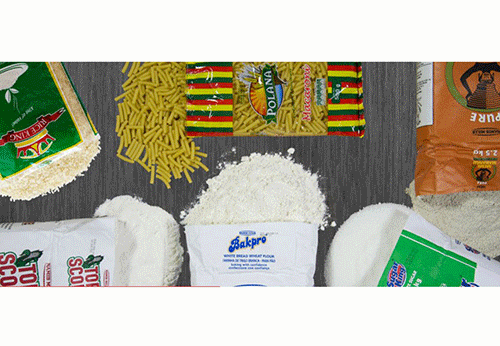Omu Kakujaha-Matundu, a senior lecturer at the University of Namibia (Unam), warned that any increase in food prices – no matter how small – places a huge burden on consumers and more so on low-income families. The local economist, who cautioned that stress levels among the poor definitely increase when food prices go up, was reacting to Namib Mills’ price increase that went into effect on 12 April 2021 for mahangu, rice and wheat flour products, including pasta and bread.
“Consumers are already hard-pressed. Many have been laid off and have to share the little food with the extended family, owing to the Covid-19 pandemic disaster,” said Kakujaha-Matundu.
He, therefore. urged the health ministry’s welfare department to be on the lookout and help families in distress, noting that some families have lost breadwinners due to the pandemic and are feeling the real pain of such an increase in food prices.
Local consumer and Windhoek resident Natalia Shilongo said income losses have already translated into less income in people’s pockets to buy food while market and supply disruptions, due to movement restrictions, have created local shortages and higher prices. She added that the living standards of lower-income households will be severely affected, particularly individuals who spend most of their income on basic foodstuffs.
“Of course, this will be the time to change spending patterns and tighten the household food budget to an accommodative budget of priorities and necessities; otherwise, this is shocking to happen at a time like this,” Shilongo exclaimed.
According to Marné Bouwer, senior brand manager at Namib Mills, rice, mahangu and pasta la vita prices increased by 3%, Pasta Polana by 2%, Pasta King by 4%, wheat flour by 8%, complete mix by 8% and bread by 5%.
Bouwer noted that the driving factors behind the price increases are multifactorial and include, amongst others, the imposition of a wheat export tax by Russia, the world’s largest wheat exporter, which disrupted global wheat markets and forced wheat prices up by more than 20% in the past year. She said this led to an increase in the landed cost of raw wheat and all wheat-based products.
Bouwer continued stating the global polyethylene industry is facing supply and shipping constraints, which have a significant impact on packing material cost.
“The cost of these raw materials has increased more than 30% since last year. The cost of brent crude oil increased, resulting in fuel price increases.”
She further outlined that given the global fluctuations, Namib Mills had no option but to announce price increases. - mndjavera@nepc.com.na


